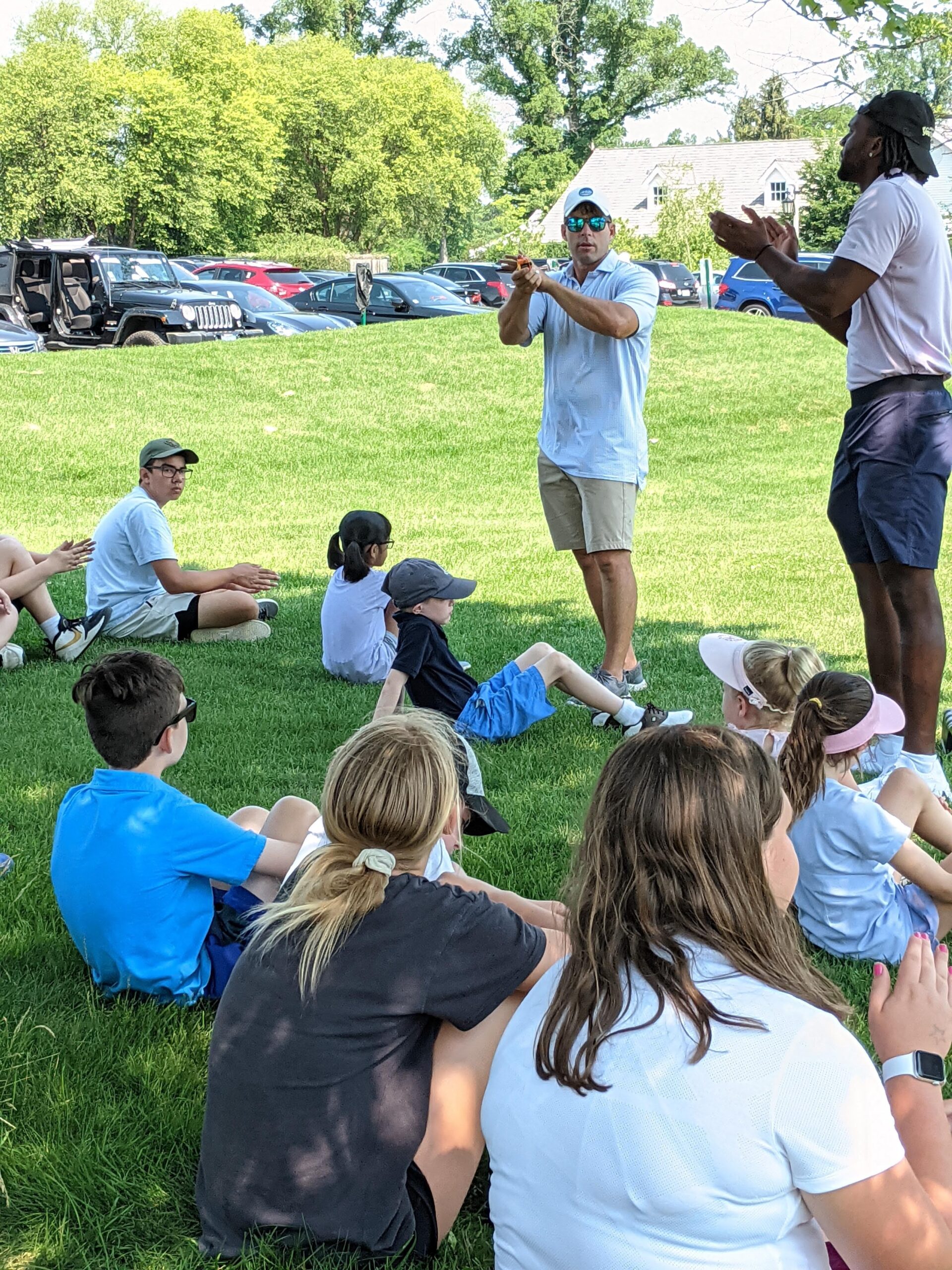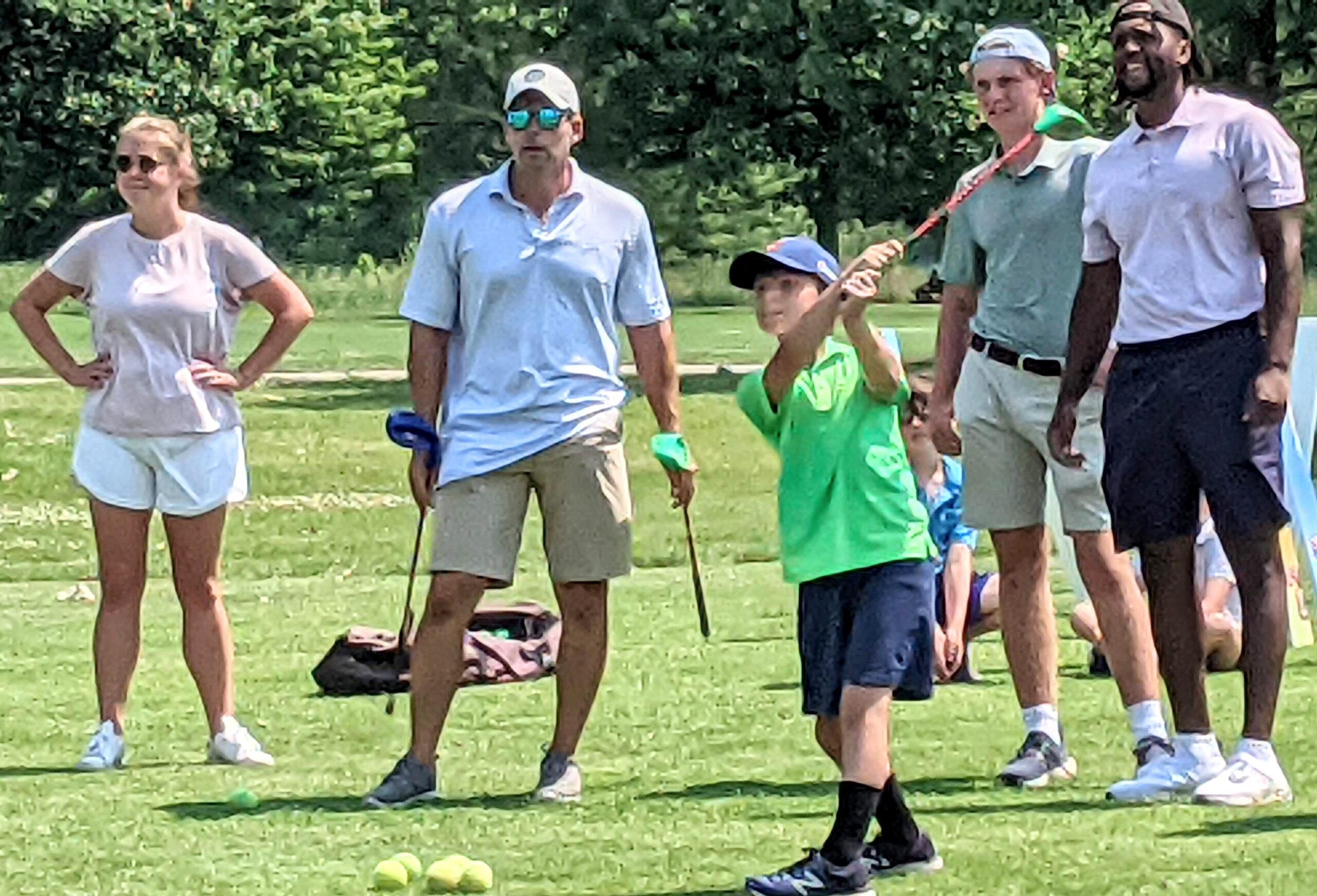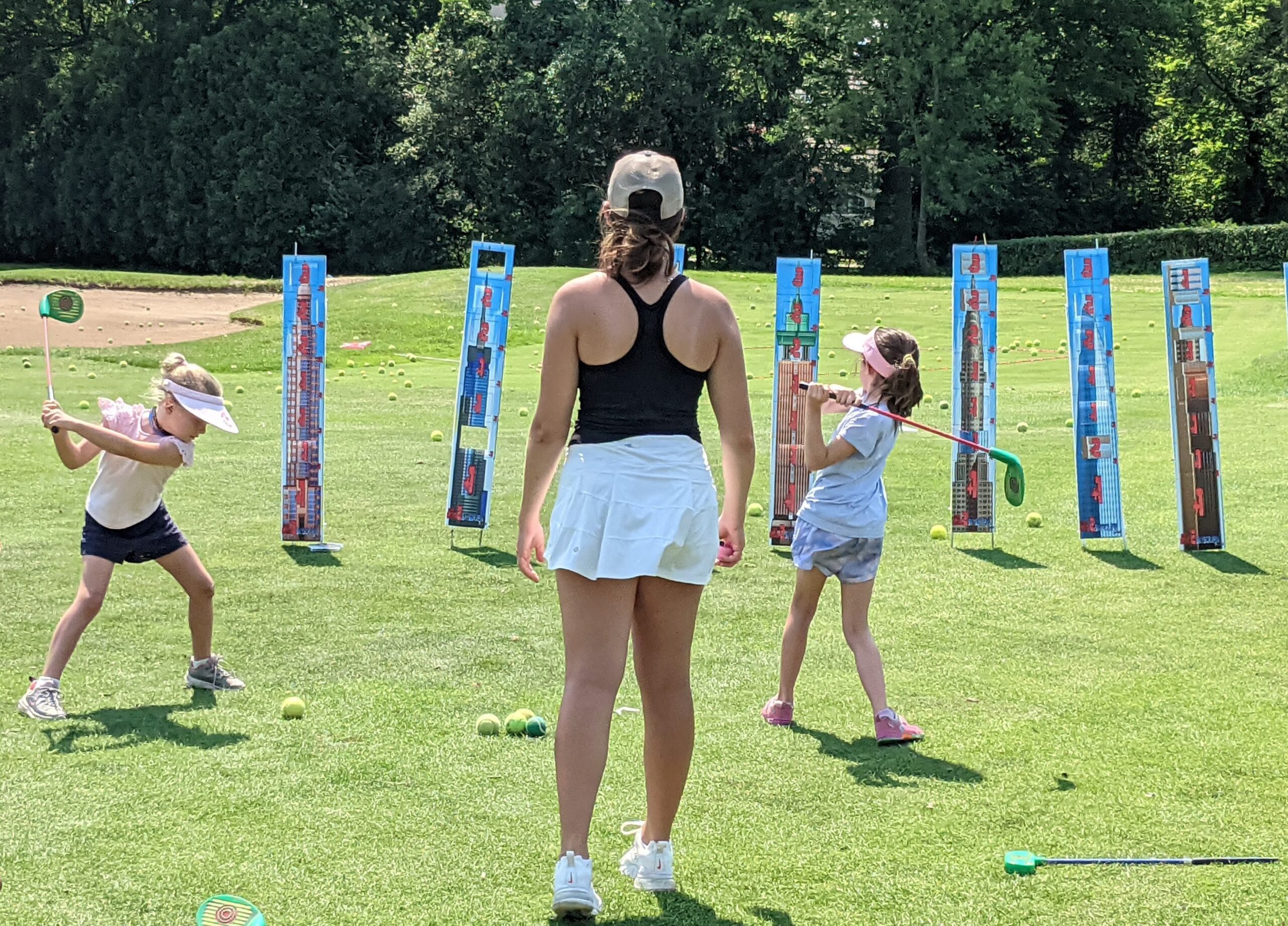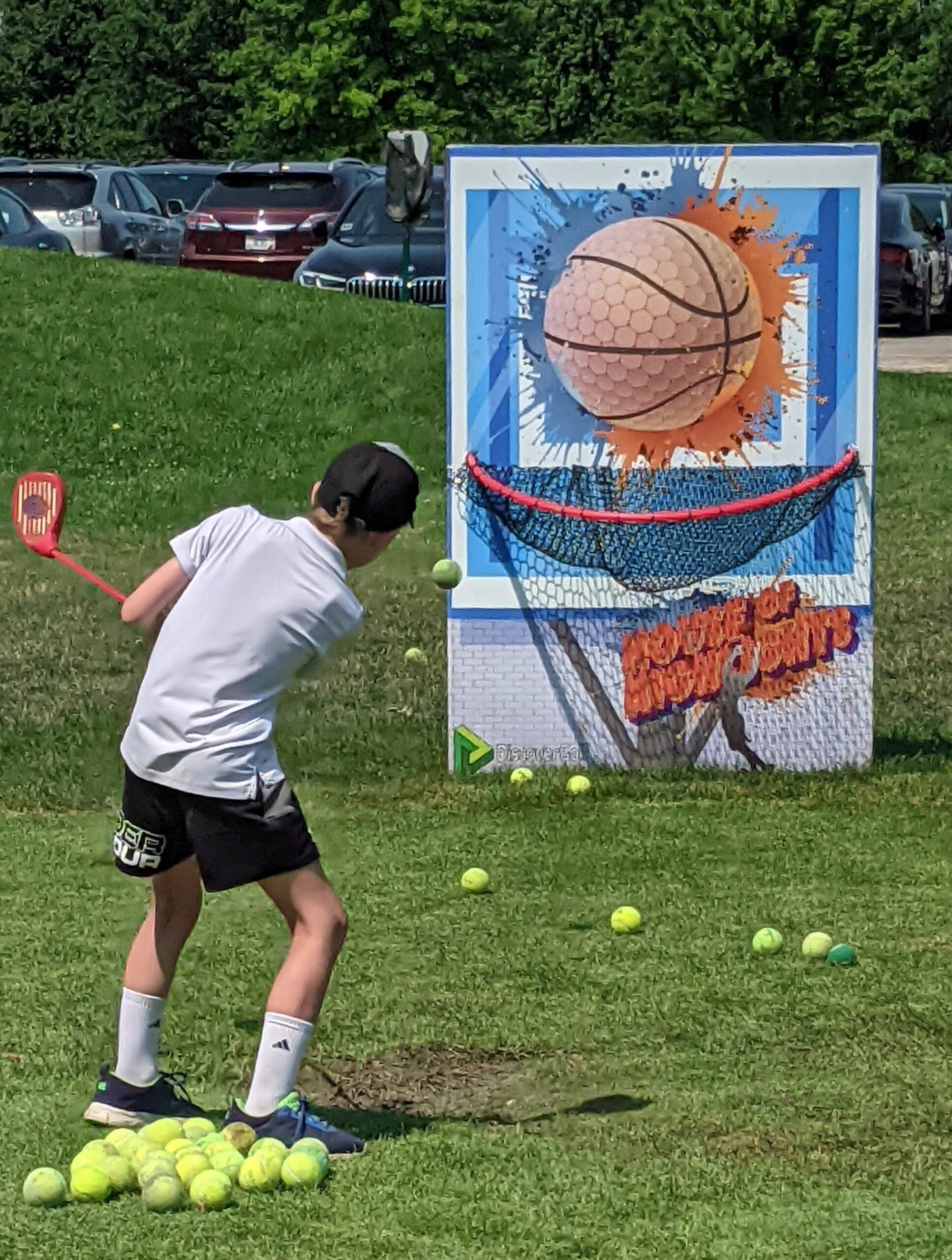
 The golf lessons that Richard Franklin offers aren’t for everybody.
The golf lessons that Richard Franklin offers aren’t for everybody.
“Some people look at what we do and say it’s not even golf,’’ admitted Franklin, but he can live with that.
Franklin, 38, calls himself “a game designer.’’ That’s what his group lessons are – a series of games for youngsters as young as 4 years old and as old as 14. They go through three-hour sessions for up to six days a week playing golf-relevant games. Franklin has given them names like “Bedazzled,’’ “Catch Corn,’’ “Neanderthal,’’ “Cave Man,’’ “Night at the Museum,’’ “Croctology,’’ “King Putt’’ and — at least a version of — “Basketball.’’
“Croctology,’’ as an example, requires the student to putt through a series of very menacing cardboard crocodile teeth to reach a ramp. That leads to the next step in the game, where precisely placed putts determine who wins the competition.
Franklin’s programs – called “DiscoverGolf’’ — may seen on the novel side, but they work. Franklin has run a successful program for 12 years at the Deerpath public course in Lake Forest. Late in 2020 he took his program to Desert Mountain, a luxury community in North Scottsdale, Ariz.
DiscoverGolf is based at Desert Mountain from October to April, then shifts to Deerpath for the summer months. He also teaches his program to other instructors, and the methodology has reached more than 7,000 youngsters world-wide at more than 250 facilities on five continents.
“Kids love games, but games have rules, constraints,’’ said Franklin. “Constraints are great for teaching. We create interesting, diverse games based on male or female, introverted or extroverted. It’s a pretty progressive approach to junior golf.’’
That it is. He describes it as “more of a Montessori style.’’ Each class has at least a 4-to-1 student to coach ratio.

Youngsters in Franklin’s sessions are provided clubs similar to those used in the SNAG teaching program. In Franklin’s programs, though, those clubs have different shafts, different molded grips and different head sizes. Participants hit tennis balls during the game sessions, though some time is spent on a golf course as well.
“Of the 800 we saw this summer (at Deerpath), only about 5 percent were interested in golf,’’ he said. “Where junior golf has gone awry is that those programs assume that the child will be interested in pars, birdies, specific outcomes. Our challenge is to get into their imagination, their sense of wonderment, making something socially relevant. We focus 100 per cent on creating emotional investment in what we’re doing.’’
That’s evident in the structure of a day’s session.
“We spend the first two hours playing games or doing something on the course. Then we ramp up the drama,’’ Franklin said. That’s when the games turn into mental and physical challenges.
“We’re big believers that kids are over-stimulated by screen time and undernourished when it comes to social interaction,’’ he said. The games stimulate interaction.
Franklin’s background is interesting. Though he was born in Chicago, Franklin’s parents are from Zimbabwe, and he spent much of his youth years overseas. The family also lived in Hinsdale and had a home off the third hole of the par-3 East Course at Eagle Ridge Resort & Spa in Galena. That’s where he had his first lessons as a junior golfer.
Nick Price, the great South African player, stayed with the Franklins when he was winning Western Open titles at Cog Hill in the 1990s. Franklin eventually went to the University of Arizona, had a so-so collegiate career and then qualified for the Canadian PGA Tour.

It didn’t take long for Franklin to realize he’d be better suited to a career in golf as a teacher rather than a tournament player. He worked with Mac O’Grady, the one-time PGA Tour player who developed the “stack and tilt’’ swing method while working as an instructor in California. Franklin was eventually a swing coach for Chip Beck, the Lake Forest resident who had his moments in some major championships before moving on to other golf-related projects.
Franklin felt much more comfortable with working with youngsters instead of professionals.
“In professional golf it’s you and a number. They just want you to massage their egos,’’ said Franklin. “With 6, 7, 8 or 9 year-olds you’re actually changing their lives. I really believe that.’’
In addition to his brief fling playing professional golf Franklin has a background in childhood development, behavioral psychology and graphic design.
“Golf is usually taught in a linear way – grip, stance, tempo, etc.,’’ he said. “I believe in an approach that honors the non-uniform nature of childhood development. Leading young people requires us to adapt with culturally relevant programming that honors a child’s kaleidoscope of prior experiences, unique perspectives, emotions and personality. That is brought to bear on our lesson tee.’’

